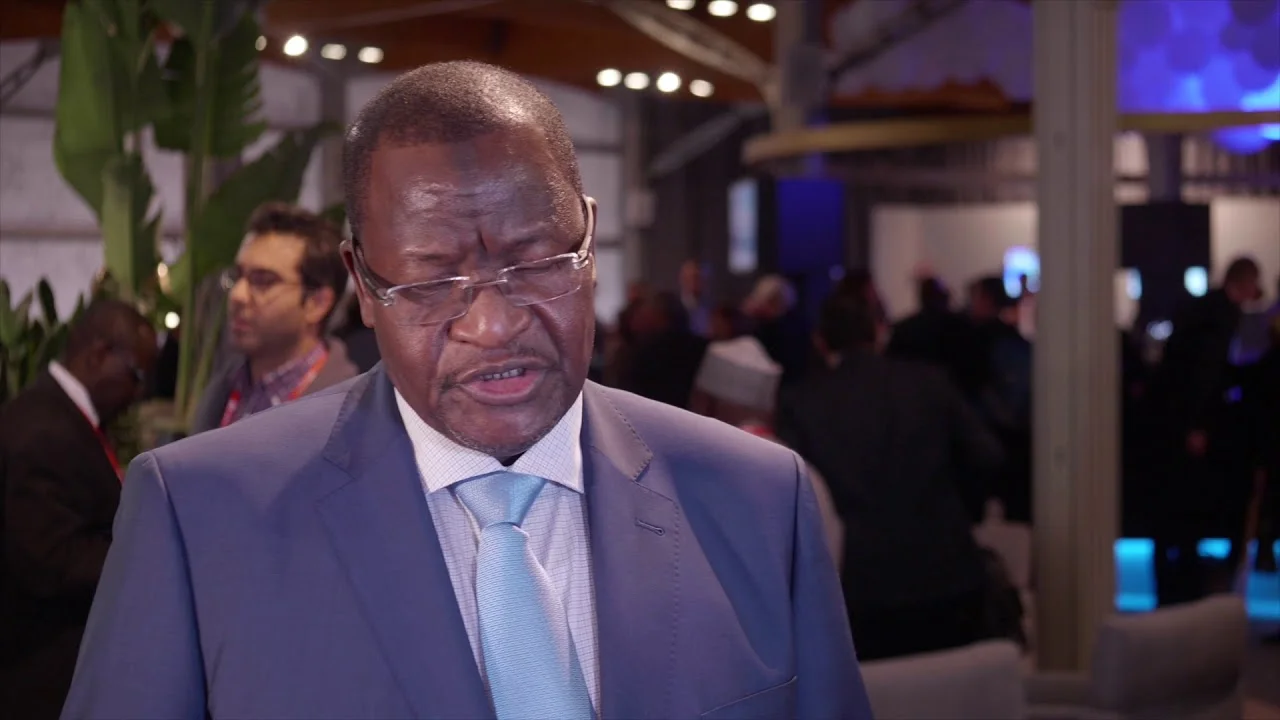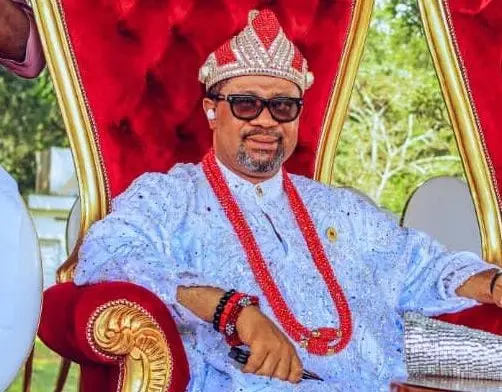The Executive Vice Chairman and Chief Executive of the Nigerian Communications Commission, NCC, has said the Commission is committed to sustaining cordial relationships, cooperation and collaboration with sister regulatory agencies between the banking and telecommunications sectors to evolve services that are fair to the consumer.
Danbatta spoke at the 2022 World Consumer Rights Day, WCRD held at the NCC Head Office, Maitama, Abuja, on Tuesday, March 15, 2022.
The EVC said as the global community celebrates the WCRD 2022, the Commission is affirming that the theme of this year, Fair Digital Finance, will be an integral part of its activities aimed at Protecting, Informing and Educating the telecoms consumer.
The NCC boss noted that the event is remarkable because it aligns with the emerging realities in the Commission’s constant efforts to implement its mandate as the regulator of the telecommunications industry.
He noted that in the earlier years, at the inception of the Commission, the concern was more around liberalizing the industry to encourage more participants to drive competition, adding that this was done with the consumer being the focal point of the Commission’s regulatory activities.
As the regulator of a very dynamic industry, he said the NCC is aware of the changing trends in technology and that without a doubt, the telecommunications sector has significantly grown after its liberalization in 2001, witnessing an unprecedented positive impact on other socio-economic sectors in the country.
The EVC continued, “The entry of mobile telecommunications technology has brought transformation to sectors such as banking, finance, insurance, commerce, trading, aviation, pension, entertainment, education, health, agriculture, etc. with various other services riding on the mobile telecommunications technology in Nigeria.
“Digital technology offers Nigeria the opportunity to grow and diversify its economy from the overdependence on oil & gas export proceeds.
“The launch of the Nigerian National Broadband Plan 2020-2025 attests to the fact that Nigeria is poised to join the comity of nations and become a global leader in transforming its economy into a digital one.
“The broadband plan is designed to deliver 120,000km of fiber, 70% penetration, data download speeds across Nigeria of a minimum of 25mbps in urban areas, and 10mbps in rural areas, with effective coverage available to at least 90% of the population at a price not more than ₦390 per 1GB of data (i.e., 2% of median income or 1% of minimum wage) by end of 2025.
“Through the years, the industry grew, and with that growth, there have been convergences – financial transactions that were once conducted in-person at banking halls are now resident on consumers’ mobile devices.
“The lines have thinned between the platform provided by telecommunications, the content produced by media, and services offered by financial institutions.
“Many of the financial and commercial activities undertaken by humans have been digitized, they are fused into what is now referred to as Digital Economy that has grown to be so strategic that Nigeria promptly formulated a policy, the National Digital Economy Policy and Strategy (NDEPS) 2020-2030.
“The development of a digital economy is creating new technology platforms and industries on one hand, while enhancing the efficiency and productivity of existing industries on the other.
“Other benefits of the digital economy as it relates to consumer relations: Rise in e-services, Creating Job Opportunities, Expansion of Business Opportunities, and Digital delivery of Goods and Services.
“Pillar #6 of the NDEPS 2020-2030, which deals with soft infrastructure, has proven to be proactive. The soft infrastructure pillar focuses on strengthening public confidence in the use of digital technologies and participation in the digital economy.
“The pillar will address the importance of cybersecurity and other standards, frameworks, and guidelines that encourage citizens to go digital. Data privacy and the deployment of technologies like the public key infrastructure are addressed in this pillar.”
“The theme of this year’s World Consumer Rights Day, as announced by Consumer International, calls for stakeholders to do more in protecting consumers and keeping them informed.
“This is because more people are signing up for digital financial services like banking, insurance, and investment management.
“Juniper Research predicts that users of digital banking services would increase by 54% from 2.4 billion in 2020 to exceed 3.6 billion by 2024.
“However, some of these consumers must cope with vulnerabilities in using digital financial services. These challenges of adapting to digital platforms for transactions are further worsened by unscrupulous people that exploit consumer vulnerabilities for illicit gains.
“All stakeholders have the responsibility to protect consumers against losses on account of their adopting digital platforms; they should enjoy the protection as obtained on the legacy platforms.
“Fortunately, NDEPS 2020-2030 adequately addressed the protection of telecom consumers against the threats of cybercrime, encouraging them to embrace digital finance and supporting them to contribute to the digital economy.
“The Commission, committed to fulfilling its mandate and passionate about driving Digital Economy in Nigeria, has continued to implement initiatives in this regard.
“Through its Consumer Affairs Bureau (CAB), it undertakes constant Consumer Education with a significant part of this effort dedicated to providing information that equips the Consumer to thrive in a world that has embraced digital finance.
“Through its outreach programs, which have been re-tooled to reflect existing realities and trends, Consumer Affairs Bureau now has consumer-centric initiatives that include Telecom Consumer Parliament (TCP), Telecom Consumer Town Hall on Radio (TCTHR), Telecom Consumer Conversations (TCC) as well as social media platforms and a Consumer Portal that are avenues for telecom consumers to access education materials that include how to safeguard themselves while using telecom platform to access digital financial products.
“CAB has developed and produced various consumer education materials such as Flexi and Roll-up Banners, Handbills, Stickers, Bookmarks, and Consumer Handbook on major telecom topics, which are regularly distributed to consumers.
“As part of activities marking the 2022 World Consumer Rights Day, the Commission has finalized arrangements to establish the Telecom Consumer Assistance, Resolution and Enquiries (TELCARE) Desk, at strategic locations across the country to provide information to telecom consumers.
“The TELCARE desk is to serve as an additional platform to receive and facilitate the resolution of consumer complaints; provide a means through which consumers and citizens can make inquiries on consumer issues; provide a platform for advocacy on any thematic consumer issue or concerns; to further enhance awareness of the Commission’s activities.
“The Commission plans to have help desks located at strategic places at Nigerian Airports, with the desk in the Arrival Lounge of the Nnamdi Azikiwe Airport Abuja, which is being commissioned today being a pilot.
“To further protect telecom consumers, the Nigerian Communications Commission’s Computer Security Incident Response Team (NCC-CSIRT) periodically notifies telecom consumers of the latest cybersecurity threats and how to avoid falling victims to them.
“NCC-CSIRT has been at the forefront of protecting telecom consumers from cyber threats. The provision of timely advisories has helped to protect consumers from being unfairly targeted by cyber-attacks, which goes a long way in ensuring that they can access digital services without suffering unwarranted losses.
“As we address the threat and challenges to those that are already connected to digital finance, the Commission is mindful of those that are yet to be connected because of coverage issues.
“As many as 35 million Nigerians are yet to have access to telecommunications services and by implication, they lack access to digital financial services.
“This situation denies these Nigerians access to digital financial inclusion. It is a challenge that is attributable to the inadequacy of both wireless and fibre connectivity infrastructure.
“The fact remains that more citizens will embrace the digital financial culture when they have access to telecom services in the distant, isolated, unserved, and underserved communities where they dwell.
“We are therefore conscious of the urgency of increasing investment in both fixed and wireless infrastructure. This will make the target of at least 80 percent level of financial inclusion in about four years possible.
“The Commission has thus licensed the infrastructure companies (Infracos), which are to provide the fibre from landing ports to the hinterland of the country. A key focus in this regard is to provide broadband connectivity, especially in the 774 local government areas in the Country.
“There would be further actions to enable Infracos to commence operations as the Commission recognizes that fibre is the long-term solution to the volume of transactions in the financial services sector.
“The broadband plan is designed to deliver 120,000km of fiber, 70% penetration, data download speeds across Nigeria of a minimum of 25mbps in urban areas, and 10mbps in rural areas, with effective coverage available to at least 90% of the population at a price not more than ₦390 per 1GB of data (i.e. 2% of median income or 1% of minimum wage) by end of 2025.
“Other measures towards deepening of Mobile Broadband Penetrations in the Country and in turn enhance digital Financial Services (DFS) for the benefit of telecoms consumers include Spectrum Re-farming, 5G Spectrum Auction, Re-Planning of 800MHz CDMA Spectrum for LTE, Administrative Assignment of 700MHz Spectrum for LTE.
“The Commission has made provision of Unstructured Supplementary Service Data (USSD) for financial transactions across various financial institutions’ platforms. This has brought ease to financial transactions.
“We have also committed to partnering with other key stakeholders on the government side, especially as this pertains to the regulatory aspect to ensure that providers of digital financial services play by the rules.
“We have signed a Memorandum of Understanding with the Central Bank of Nigeria (CBN) to drive Financial Inclusion & Fintech, this has resulted in the registration of MNOs (Glo, MTN, 9Mobile & Airtel) as Payment Service Bank (PSB) entities.
“Some mobile network operators have thus secured Mobile Money Payment Services licenses from the Central Bank of Nigeria (CBN) to enable them to undertake mobile financial transaction services. “






2 Comments